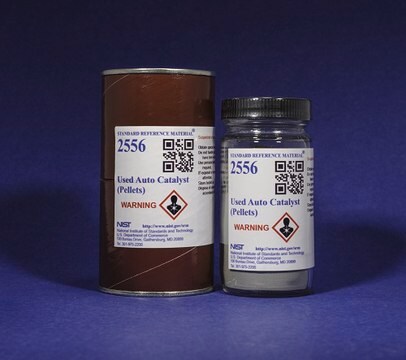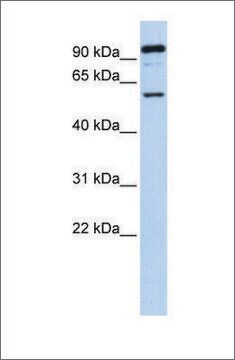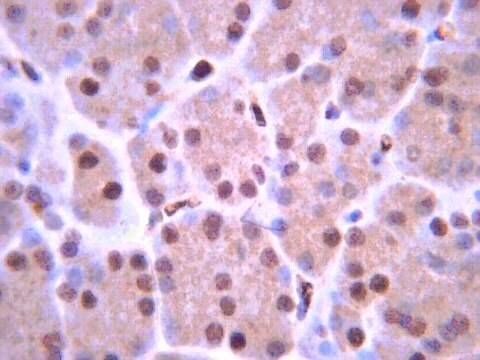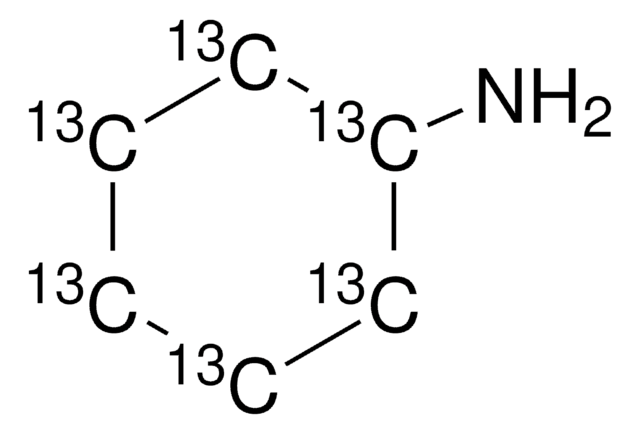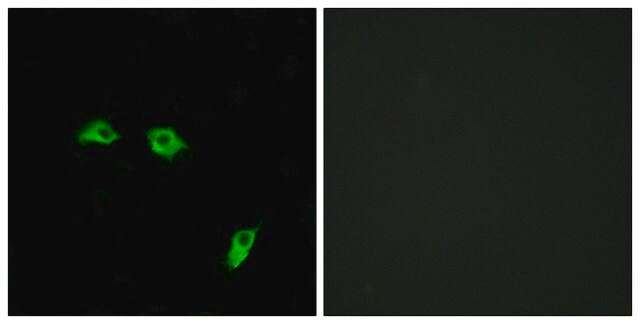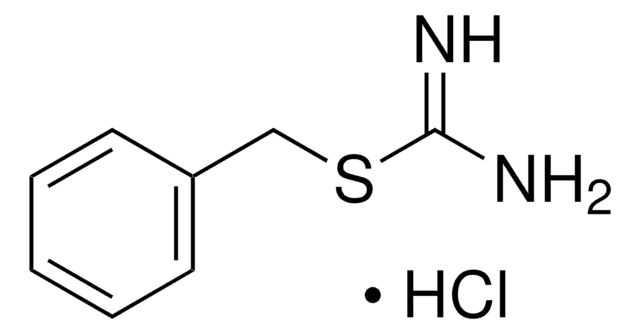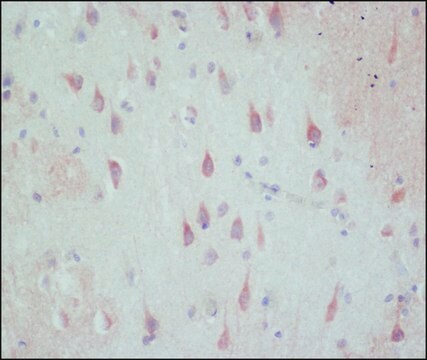ABF1067M
Anti-Tapasin
from rabbit
Synonym(e):
Tapasin, TPN, TPSN, TAP-associated protein, TAP-binding protein
About This Item
Empfohlene Produkte
Biologische Quelle
rabbit
Qualitätsniveau
Antikörperform
unpurified
Antikörper-Produkttyp
primary antibodies
Klon
polyclonal
Speziesreaktivität
mouse
Verpackung
antibody small pack of 25 μL
Methode(n)
immunoprecipitation (IP): suitable
western blot: suitable
Isotyp
IgG
NCBI-Hinterlegungsnummer
UniProt-Hinterlegungsnummer
Posttranslationale Modifikation Target
unmodified
Angaben zum Gen
mouse ... Tapbp(21356)
Verwandte Kategorien
Allgemeine Beschreibung
Spezifität
Immunogen
Anwendung
Entzündung & Immunologie
Western Blotting Analysis: A representative lot detected Tapasin in CMT.64 cells treated with IFN- (Lou, Y., et. al. (2008). Clin Cancer Res. 14(5):1494-501).
Qualität
Western Blotting Analysis: A 1:1,000 dilution of this antibody detected Tapasin in 10 µg of NIH/3T3 cell lysate.
Zielbeschreibung
Physikalische Form
Lagerung und Haltbarkeit
Handling Recommendations: Upon receipt and prior to removing the cap, centrifuge the vial and gently mix the solution. Aliquot into microcentrifuge tubes and store at -20°C. Avoid repeated freeze/thaw cycles, which may damage IgG and affect product performance.
Sonstige Hinweise
Haftungsausschluss
Sie haben nicht das passende Produkt gefunden?
Probieren Sie unser Produkt-Auswahlhilfe. aus.
Lagerklassenschlüssel
12 - Non Combustible Liquids
WGK
WGK 1
Analysenzertifikate (COA)
Suchen Sie nach Analysenzertifikate (COA), indem Sie die Lot-/Chargennummer des Produkts eingeben. Lot- und Chargennummern sind auf dem Produktetikett hinter den Wörtern ‘Lot’ oder ‘Batch’ (Lot oder Charge) zu finden.
Besitzen Sie dieses Produkt bereits?
In der Dokumentenbibliothek finden Sie die Dokumentation zu den Produkten, die Sie kürzlich erworben haben.
Unser Team von Wissenschaftlern verfügt über Erfahrung in allen Forschungsbereichen einschließlich Life Science, Materialwissenschaften, chemischer Synthese, Chromatographie, Analytik und vielen mehr..
Setzen Sie sich mit dem technischen Dienst in Verbindung.
